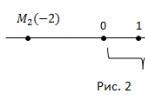Scientific knowledge is not necessarily established by every synthetic judgment (see the article Analytical and Synthetic Judgments in Kant). In order for a judgment to create knowledge in the scientific sense, it is necessary that it be true in all cases, so that the connection it establishes between the subject and the predicate is not accidental, but necessary.
“It’s warm now” is a judgment, no doubt synthetic, but with a completely random character, because tomorrow it may be cold. In this case there is no question of a scientific proposal. On the contrary, when we say, “heat expands bodies,” we are expressing a fact that will not be less true tomorrow, or even a thousand years from now, than it is today; We express a necessary proposition—knowledge in the proper sense. But by what right will I assert that this provision is necessary, comprehensive, and fair in all cases? Does experience give us all possible cases, and is there not a case, not subject to our observation, in which heat, contrary to usual, does not expand bodies? We cannot firmly exclude such a case - and from this side Hume is right in his philosophy. Experience, having in its power only a limited number of cases, cannot provide anything necessary and universal. Consequently, a posteriori judgments, i.e. based solely on experience ( a posteriori), cannot provide scientific knowledge. To be necessary, that is, scientific, it is necessary for a judgment to be based on the data of reason, so that it has roots as much in reason itself as in observation - so that it is a pre-experimental judgment, independent of experience - a priori ( a priori). And indeed, metaphysics, physics, and mathematics consist of a priori synthetic judgments. So, cognition must be defined as an a priori synthetic judgment. This is Kant's answer to the question: what is knowledge?
Kant's theory of knowledge
How can we create a priori synthetic judgments? Or, in other words, under what conditions is cognition possible? This is the main question posed by Kantian criticism.
Knowledge is possible, Kant replies, provided that the senses provide the materials for judgment, and reason is the cement intended for their connection. Let's take the above sentence: heat expands bodies. This position contains two different kinds of elements: on the one hand, elements delivered by sensation (warmth, expansion, body); on the other hand, an element that eludes sensation and is created solely by the mind, namely - causation, which this position establishes between heat and expansion of bodies. Everything that is true for this situation that serves as an example for us is also true for every scientific judgment.
Any scientific judgment necessarily consists of sensory elements, given in the sensations of experience, and “pure” elements added by our mind in addition to experience. Denying the first, idealism does not recognize the fact that a person born blind has no idea of color and, therefore, no concept of light (Kant in this case calls Berkeley’s teaching idealism). Denying the rational, innate, a priori element, sensationalism forgets that even the healthiest and freshest sense organs are powerless to instill scientific knowledge in an idiot. Consequently, philosophy needs to stand between these two opposing theories so that it at the same time recognizes both the role of sensibility and the role of pure reason in the formation of our judgments.
But first we need to delve deeper into the ability of cognition. Having now found out that this ability is decomposed into two secondary abilities, of which one supplies sensory material for our knowledge, and the other processes it and forms concepts from it, Kant, in his further philosophizing, divides criticism of reason into criticism of sensory sensations (transcendental aesthetics) and criticism thinking ability ( transcendental logic).
in Kant's Critique of Pure Reason - one of the groups in the totality of a priori knowledge; a type of a priori judgment in which (unlike analytical judgments) the knowledge established by the predicate is new, in comparison with the knowledge contained in the subject. In judgments of this type, according to Kant, there is a new connection, a new synthesis of knowledge, which is why he calls them synthetic, “expanding” judgments. The role of A.S.S. in knowledge, according to Kant, is extremely important. Thus, if analytical judgments (and they do not add anything to the concept of the subject with their predicate, but only decompose it into parts through analysis that have already been thought in it) are necessary for cognition in the sense that they give the clarity “required for a confident and broad synthesis” our concepts, then A.S.S. represent, according to Kant, the final goal of all our knowledge, actually building its entire new edifice and requiring constant recourse to experience. Kant focuses on A.S.S. also because they express the ability of human cognition, such as the acquisition of not just new, but also knowledge that has the status of universality and necessity, embodying in essence the goal of any cognitive process. This universality and necessity are achieved, however, not through an appeal to experience, which, in principle, is not capable of providing such knowledge, but thanks to the special cognitive abilities of man. These abilities reach their highest embodiment in science, the truths of which, according to Kant, are constantly extracted and updated by A.S.S. Such judgments already exist, i.e. possible. The main problem Throughout the Critique of Pure Reason the question becomes how they are possible. How is new, true knowledge, possessing indisputable universality and necessity, possible? The entire architectonics of Kant’s main work is a consistent concretization of this central problem, which is framed in three closely related questions: a) how are a priori judgments possible in mathematics? b) how are a priori judgments possible in natural science? c) how are a priori judgments possible in metaphysics? Answering them, Kant simultaneously explores the cognitive abilities inherent in all people, or the forms of knowledge used in these areas of knowledge - sensibility, reason and reason. Gradually, Kant brings to the fore the question of the possibility of A.S.S. in metaphysics; the latter, in turn, is transformed into the problem of its (metaphysics) possibility as a science in general with its own specific subject, problematics, language, etc. [Cm. also "Critique of Pure Reason" (Kant).]
A PRIOR SYNTHETIC JUDGMENTS
in Kant’s Critique of Pure Reason - one of the groups in the totality of a priori knowledge; a type of a priori judgment in which (unlike analytical judgments) the knowledge established by the predicate is new, in comparison with the knowledge contained in the subject. In judgments of this type, according to Kant, there is a new connection, a new synthesis of knowledge, which is why he calls them synthetic, “expanding” judgments. The role of A.S.S. in knowledge, according to Kant, is extremely important. Thus, if analytical judgments (and they do not add anything to the concept of the subject with their predicate, but only decompose it into parts through analysis that have already been thought in it) are necessary for cognition in the sense that they impart the distinctness required for a confident and broad synthesis our concepts, then A.S.S. (see also CRITIQUE OF PURE REASON (KANT).)
History of Philosophy: Encyclopedia. - Minsk: Book House. A. A. Gritsanov, T. G. Rumyantseva, M. A. Mozheiko. 2002 .
See what “APRIORIY SYNTHETIC JUDGMENTS” are in other dictionaries:
In Kant's Critique of Pure Reason, one of the groups in the totality of a priori knowledge; a type of a priori judgment in which (unlike analytical judgments) the knowledge established by the predicate is new in comparison with the knowledge... ... History of Philosophy: Encyclopedia
SYNTHETIC JUDGMENTS judgments, so called by I. Kant, who contrasted them as expanding and multiplying knowledge with analytical judgments, which only reveal and explain, as a result of logical analysis, the content already contained in them... ... Philosophical Encyclopedia
Judgments, so named by I. Kant, who contrasted them as expanding and multiplying knowledge with analytical judgments, which only reveal and explain, as a result of logical analysis, the content already contained in them (Kant I. Soch., vol. 4 (1). M ... Philosophical Encyclopedia
synthetic judgments- SYNTHETIC JUDGMENTS are a type of judgments contrasted with analytical judgments. The prerequisites for this distinction were already implicit in G. Leibniz, who distinguished between the truths of reason and the truths of fact, and besides, significance in all... ... Encyclopedia of Epistemology and Philosophy of Science
- (German analytische und synthetische Urteile a priori) – terms of Kantian philosophy, which also have wide application in various directions of modern philosophical thought, mainly within the framework of analytical philosophy. Introduced by I. Kant in... ... Philosophical Encyclopedia
Kantianism ... Wikipedia
Kant Immanuel - Life path and the works of Kant Immanuel Kant was born in Königsberg (now Kaliningrad) in East Prussia in 1724. His father was a saddler and his mother a housewife; six of their children did not live to adulthood. Kant always remembered his parents from... ... Western philosophy from its origins to the present day
Title page of the first edition of “Critique of Pure Reason” (German: Kritik der reinen Vernunft), the seminal philosophical work of Immanuel Kant, published in 1781. The second edition of 1787 was significantly revised and supplemented by the author. In... ... Wikipedia
But does a priori knowledge really exist? Kant proves that this is so, and at the same time changes the concept of a priori. Kant agrees with Locke that all human knowledge begins with experience. But this recognition does not negate the presence of a priori knowledge. Kant says: “Although all our knowledge begins with experience, it does not at all follow from this that it comes entirely from experience.” And he continues: “It is quite possible that even our experimental knowledge consists of what we perceive through impressions, and from what our own cognitive ability (only prompted by sensory impressions) gives from itself...”. Thus, for Kant, a priori knowledge does not precede experience in time, but, appearing only together with experience, nevertheless does not depend on any possible experience.
Why is Kant so sure that such knowledge exists at all? Because experience cannot give knowledge universality and necessity. Consequently, if the sciences contain necessary and universal statements, then they must necessarily contain an element of content that does not come from experience, i.e. is a priori. Therefore, it is necessary to study the possibility, principles and scope of a priori knowledge available to a person.
To more accurately formulate his problem, Kant constructs a classification of judgments. First of all, judgments can be analytical or synthetic. Analytical judgments add nothing to existing knowledge and are only explanatory. These are, in essence, tautologies. Kant's example: the judgment “The weight of a body is extended” is analytical, because in order to be convinced of its truth, it is enough to simply analyze the concept of body and understand that it already implies the property of extension. Synthetic judgments, on the contrary, provide new content. Kant's example: the judgment “All bodies have heaviness” is synthetic because it adds to the idea of a body, in which we implicitly think of some signs (in this case, the sign of extension, since any body occupies some space), a new idea, which in the concept the body is not contained - a sign of heaviness.
So, synthetic judgments are called synthetic because in them the understanding synthesizes various contents. In this way they enrich our knowledge. On what basis does reason do this?
Experience may be such a basis. All judgments based on experience are, of course, synthetic. Experience is the synthetic binding of intuitions. For example, if in experience we have the perception of a rose and its color, then this experience will be the basis for the synthetic judgment “the rose is red.”
But besides them, can there exist a priori synthetic judgments? Kant says yes. These are, first of all, judgments of mathematics. Indeed, they are not experiential in nature and at the same time expand our knowledge. Further, it turns out that natural science also contains a priori synthetic judgments. In fact, although natural science by definition is knowledge based on experience, it also relies on certain principles that are universal and necessary, for example: “Everything that happens has its cause”; “With all changes in the corporeal world, the amount of matter remains unchanged,” “With any transmission of motion, action and reaction must always be equal to each other.” Therefore, contrary to the most common ideas about scientific knowledge, it is not completely conditioned by experience, but relies on the a priori synthesizing activity of cognition.
And finally, the third sphere of synthetic judgments a priori is metaphysics. In fact, a metaphysical doctrine cannot be only a set of analytical judgments - in this case it would turn into a simple set of definitions. At the same time, metaphysics addresses objects going beyond any possible experience, i.e. intelligible. Therefore metaphysics, if it is possible at all, must consist of synthetic a priori judgments.
Thus, the study of human cognition, according to Kant, requires an answer to the question: How are a priori synthetic judgments possible? This general question, in accordance with the main areas in which synthetic judgments a priori were discovered, is divided into the following four questions.
How is pure mathematics possible?
How is pure natural science possible?
How is metaphysics possible as a natural inclination?
How is metaphysics possible as a science?
We will be interested in Kant's answer to the first two questions.
ANALYTICAL AND SYNTHETIC JUDGMENTS - terms that are widely used in various areas of modern philosophical thought, mainly within the analytical tradition, were introduced by I. Kant in the “Critique of Pure Reason”. The question of the possibility of a priori synthetic judgments was stated by Kant as the main question of all critical philosophy. Dichotomy of A. and s.s. is based on the possibility of a different relationship between the subject and the predicate of a judgment. By analytical judgments, Kant understands those where the predicate, already contained in the concept of the subject and vaguely thought of in it, is explicated from this concept according to the law of identity. Although analytical judgments do not deepen our knowledge, they still expand the sphere of what is clearly thinkable. This psychological point is the main difference between analytical judgments and meaningless tautologies. All analytical judgments based on the law of identity are a priori (strict necessity, according to Kant, is one of the criteria for a priori knowledge). Among the examples of analytical judgments given by Kant are the following statements: “all bodies are extended,” “all gold is yellow,” “all my ideas are united in the Self.” As an analytical judgment, the proposition “gold is yellow” has the following meaning: a necessary condition for naming an object “gold” is the presence of yellow color. If we interpret this position as a synthetic judgment, the possibility of which Kant does not exclude in principle, then it will mean that every object with such and such properties, i.e. gold also has yellow. In metaphysics, as in other sciences, analytical judgments play a service role, clarifying and clarifying basic concepts. By synthetic judgments, Kant understands those judgments in which the predicate introduces a new attribute that was not previously contained in the content of the concept related to the subject. By expanding our knowledge, synthetic judgments are the true goal of all sciences. Examples of synthetic propositions: “all bodies have heaviness”, “every change has a cause”, “7 + 5 = 12”. Kant is only interested in true synthetic propositions. The truth of synthetic judgments cannot be determined by their formal structure, like that of analytical judgments. It depends on the relationship of the judgment to some external X, which must certify the correctness of the combination of subject and predicate in a given judgment. With regard to synthetic judgments, two cases are possible: a) the connection between the subject and the predicate is “suggested” by present objects, as in the thesis “all bodies have heaviness.” Then we are dealing with empirical synthetic judgments. Their universality can be exclusively “inductive”: b) the connection between the subject and the predicate is certified due to the fact that the formal structure of the judgment reflects the necessary conditions for the very givenness of objects of sense in experience, so that these objects must obviously correspond to what is thought in such a judgment (for example, Kant argues that a priori knowledge that every change has a cause is possible precisely because the subordination of the sequence of events to the law of causality is necessary condition our perception of this sequence). These are a priori synthetic judgments. They have strict universality and necessity and form the framework of pure mathematics and general natural science. Metaphysics only pretends to a priori synthetic knowledge and can realize them only as practical postulates. This is due to the fact that its subject area (God, freedom and immortality of the soul) lies beyond the boundaries of possible experience and cannot become an object of perception. Kant's study of a priori synthetic judgments includes: a) establishing general conditions their capabilities; b) determination, based on these conditions, of the boundaries of synthetic cognition; c) the implementation of these conditions in a particular case, for example, for the principle of causality (area possible cases is also determined a priori). Concepts of distinguishing A. and s.s. Kant's closest followers did not attach much importance. Critical interest in it was born in the 20th century. in connection with the “linguistic turn” modern philosophy, especially regarding the question of the synthetic nature of mathematical knowledge. This Kantian thesis was rejected by most analysts close to the ideas of the Vienna Circle. Kant's central position about the possibility of a priori synthetic judgments was subjected to an even more powerful attack. The standard “analytical” scheme generally excludes this type of judgment and implies a strict opposition between conventional analytical provisions and synthetic judgments of experience. In the second half of the 20th century. the tendency to abandon the sharp opposition between analytical and synthetic cognition is again intensifying (Quine, Rorty).
Dictionary of philosophical terms. Scientific edition of Professor V.G. Kuznetsova. M., INFRA-M, 2007, p. 14-15.




